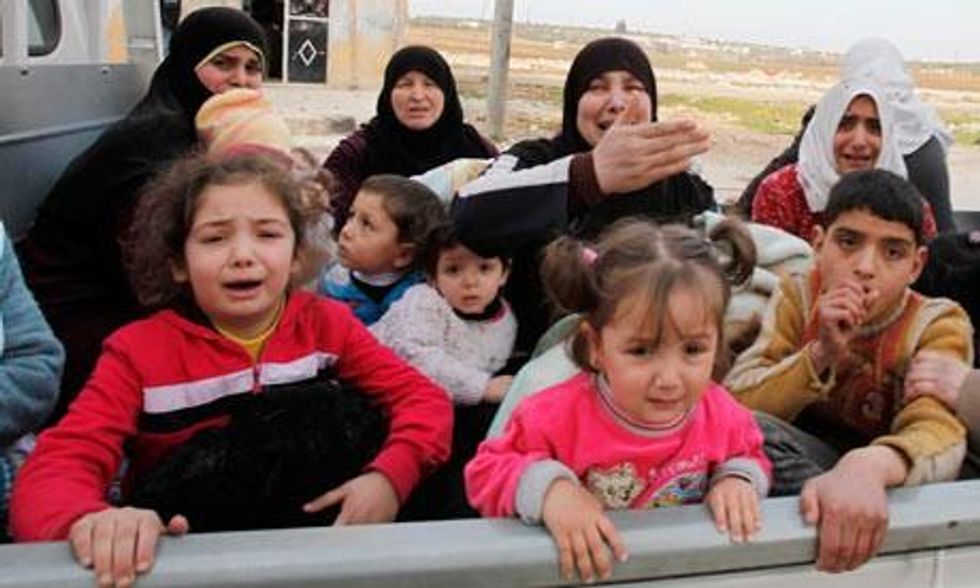The massacre in Syria rages on and yet we stand idle. We must realise that, to millions of Syrians trapped in the country, the virtual absence of humanitarian relief is nearly as arbitrary and cruel as the war itself.
Bombs, even ballistic missiles, are tearing homes apart and more than 70,000 people have been killed. Weapons, not blankets, are pouring into the country. The BBC asks a child if he misses playing with his friends and he replies, "they are all dead." God is weeping.
Where are the shelters and the food? More than a million Syrians are leaving the country and their lives behind. Half of them are children.
Across the border, the refugee camps, where help exists, are swelling in size and struggling to cope. Families are opening up their homes to those fleeing the conflict, in wonderful acts of kindness - but this is a huge burden to them. We cannot, and should not, rely on such generosity.
Help must be made available inside the country to all who need it. It is shameful that the few brave organisations who can provide relief must often do so in hiding, or, if not, are severely impeded anyway.
The stories they tell are heartbreaking: water tanks are riddled with bullet holes, neighbourhoods are starved, hospitals are deliberately shelled. These groups ask for nothing more than to aid Syrians on the right scale, in the open and in safety.
What on earth will it take for this to finally happen? For two years, our so-called international community has allowed complex power plays to take priority over the terrible suffering of Syrians. It is so uncaring and cynical. If your loved ones were trapped there, would you not be moved to act? Would you care for politics rather than safety in the face of such carnage?
In the absence of a political solution, there is simply no excuse for the lack of concerted, neutral humanitarian efforts to reach the millions who are suffering everywhere in the country. Surely it is in the interest of anyone who cares for the future of Syria to keep families safe and children unscathed?
As my fellow Elders, Martti Ahtisaari and Fernando Henrique Cardoso, wrote last week, no-one with the power to change the situation, no human being, can in good conscience refuse to heed this call. But we must be making this call a lot louder than we have done so far. It is a moral failure not to do so.
How many more harrowing scenes of exhausted families crossing the border into Jordan, Lebanon or Turkey must we bear witness to? For how long must we hear their tales of grief and devastation before the ambulances are allowed to enter?
Ultimately it falls to the Syrian authorities to give their blessing if the UN is to organise humanitarian access for medicine, food and blankets to reach all parts of Syria. But our efforts to achieve even this, and fulfil our deepest moral obligation to Syrians, have been half-hearted at best.
As Elders we wish our colleague Lakhdar Brahimi strength as he faces an unconscionable situation as the UN-Arab League peace envoy to Syria. We pray he can help reach a breakthrough in the crisis very soon.
But until then we must really knock some heads together. For each second that passes without care for the people trapped in the crossfire, we undermine our own moral standards. We act as if their lives have less value than ours, as if we have written them off already. We abandon our brothers and sisters in their greatest hour of need.


